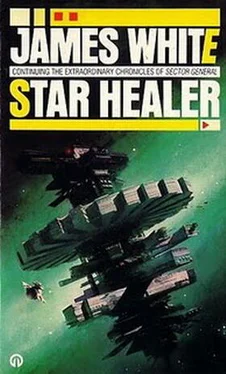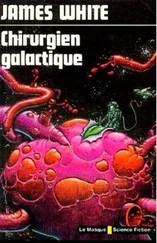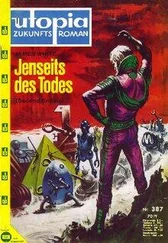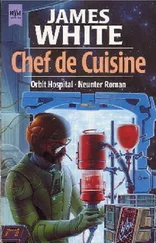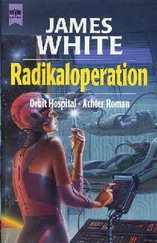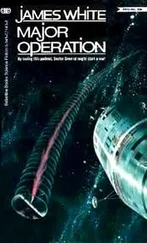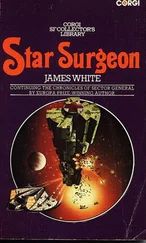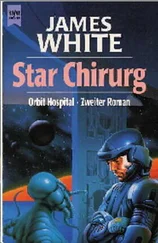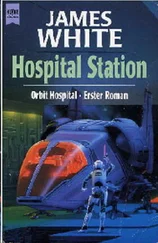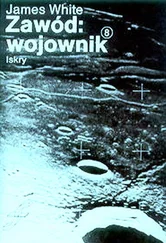“No,” Conway said firmly. He could not see anything but the Kelgian’s conical head inside the heavy protective garment, but he could imagine the silvery fur tufting in anger as he went on. Do not cap the forelimb stumps, but prepare them instead for a transfer and transplant of the rear limbs. Otherwise your procedure as outlined is approved.”
“The risk to the patient is increased,” Yarrence said sharply, “and the operational time will be extended by at least twenty percent. Is this desirable?”
Conway was silent for a moment, thinking about the quality of life of the patient following the success of the simple as opposed to the more complex operation. Compared with the immensely strong and precisely controlled forelimbs possessed by a normal FROB, the telescoping, hinged, and swiveling prosthetic was ridiculously weak and inefficient. As well, Hudlar amputees found them aesthetically displeasing and distressing when the forelimbs-which were the members most conveniently placed to the eyes and used for the more delicate physical manipulations, including the long and involved preliminaries to mating-were artificial. Transplanting the rear limbs forward, although risky considering the weakened state of the patient, was infinitely preferable, because if the operation were successful, it would provide the FROB with forelimbs which would be only fractionally less sensitive and precise than the originals. Since the limbs would be coming from the same entity, there would be no immune system involvement or tissue rejection problems.
The Hudlar material in Conway’s mind was insisting that he disregard the risks, while his own mind was trying desperately to find ways of reducing them.
He said, “Leave the forelimb transplant until the cranial and abdominal work is successfully completed; otherwise the transplant would be wasted effort. Don’t forget to clean the tegument frequently and respray with anesthetic. In cases like this the absorption mechanism is affected by the general condition of—”
“I know that,” Yarrence said.
“Of course you do,” Conway went on. “You have the Hudlar tape, too, probably the same one as I have. The operation carries a strong element of risk, but it is well within your capabilities, and if the patient were conscious I have no doubt that—”
“It would want to take the risk, too,” Yarrence broke in again. “But if the Hudlar in my mind feels that way, I, as the surgeon, feel obliged to express caution on its behalf. But I agree, Conway, the operation is desirable.”
Conway detached himself from the operating frame, paying Yarrence the compliment of not watching the opening stages of the operation. In any case, incising an FROB’s ultratough tegument required the tools of an engineering workshop rather than an operating theater, because the cauterization effects of using fine laser cutters, which were so necessary during internal surgery, seriously inhibited healing along the faces of tegument incisions. The blades which had to be used were two-handed Kelgian Six scalpels, and they required a lot of physical effort as well as a high degree of mental concentration in use, and frequently the medic was in greater danger from the blade than the patient. It was a good time to remove all unnecessary distractions from Yarrence, which included the presence of a would-be Diagnostician, and move to FROB-Ten.
It was obvious from the first look that this patient would never again see its home planet. Five of the six limbs had either been traumatically severed during the accident or damaged beyond the possibility of surgical reconstruction. In addition there was a deep incised wound in the left flank which had penetrated to and destroyed the function of the absorption organ on that side. Decompression, brief as it had been before the victim’s self-sealing safety bubble had deployed inside its room, had damaged the organ’s twin on the right side because of the sudden rush of body fluid toward the area which had been opened to zero pressure. As a result FROBTen was able to receive barely enough sustenance to continue living, providing that it did not exert itself in any way.
An FROB perpetually at rest was difficult to imagine. If such a thing were possible, it would certainly be a very unhappy Hudlar.
“A multiple replacement job,” Senior Physician Edanelt said, curling an eye to regard Conway as he approached. “If we have to replace a major internal organ, there is no point in fitting prosthetic limbs rather than real ones. But it bothers me, Conway. My Hudlar alter ego suggests that we don’t try too hard with this one, while my own purely selfish Melfan mind is concerned chiefly with gaining more other-species surgical experience.”
“You are being too harsh with yourself,” Conway said, then added thoughtfully, “At the same time, I’m very glad that the hospital discourages visits from patients’ relatives. The postoperative talk with the patient, especially in a case like this one, is bad enough.”
“If the prospect causes you serious mental distress,” Edanelt said quickly, “I would willingly relieve you of it.”
“Thank you, no,” Conway said, feeling tempted. “It is supposed to be my job.” He was, after all, the acting Diagnostician-in-Charge.
“Of course,” said Edanelt. “Presumably the replacements are immediately available?”
“Patient Eighteen terminated a few minutes ago,” Conway said. “The absorption and food-processing organs are intact, and there are three usable limbs. Thornnastor will let you have more as and when you need them. This was one accident which left us with no shortage of spare parts.”
As he finished speaking, Conway attached himself to the operating frame beside Edanelt and began discussing the special problems which would be encountered with this case, and in particular the necessity for performing three major operations concurrently.
Because of the nature of FROB-Ten’s injuries there was less than fifty percent of the patient’s absorption system functioning, and that situation was being maintained with difficulty and with no certainty that there would not be further deterioration within the next few hours. The absorption mechanism could be used to assimilate the anesthetic or food, but not both, so it was essential that the patient’s period under anesthesia be as short as possible. And while the limb replacements were relatively simple microsurgical procedures, removing the damaged organ from Ten and the healthy one from the deceased Eighteen was going to be tricky and only fractionally less difficult than resiting the donor organ in the receiving patient.
The organs of absorption of the physiological classification FROB were unique among the warm-blooded oxygen-breathing lifeforms known to the Galactic Federation-even though, properly speaking, the Hudlars did not breathe. Situated under the skin of each flank, the organs were large semicircular and extraordinarily complex structures covering more than one-sixth of the body area and separated along their upper edges by the spinal column. The organs were integral with the skin, which was pitted in those areas by several thousands of tiny slits whose opening and closure was controlled by a network of voluntary muscles, and extended deeply into the body to a depth which varied between nine and sixteen inches.
Serving as it did the functions of both stomach and lungs, the combination of nutrition and air which was the dense, souplike atmosphere of Hudlar was taken in by the two large organs, and in a remarkably short period of time, the usable content of the gaseous liquid and solid mixture was abstracted and the residue passed into a single smaller and biologically less complex organ sited on the underside where the wastes were evacuated as a milky liquid.
The two hearts, situated in tandem between the organs of absorption and protected by the central vertebrae, circulated the blood at a rate and pressure which had made the early attempts at Hudlar surgery extremely hazardous for the patients. Now, however, much FROB surgical experience had been amassed since the planet’s inception into the Federation, and what was more important, a Hudlar was very hard to kill.
Читать дальше
